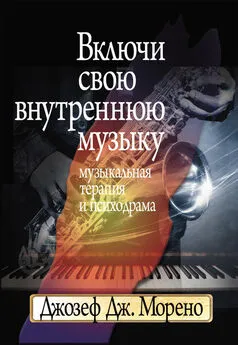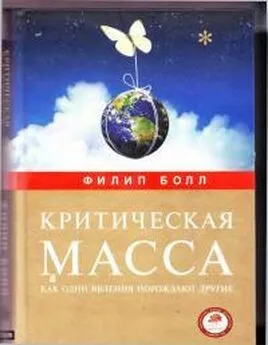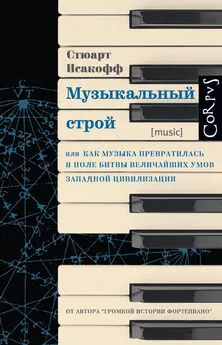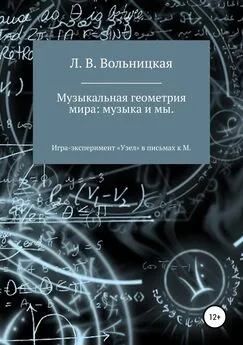Филип Болл - Музыкальный инстинкт. Почему мы любим музыку
- Название:Музыкальный инстинкт. Почему мы любим музыку
- Автор:
- Жанр:
- Издательство:Литагент 5 редакция
- Год:2021
- Город:Москва
- ISBN:978-5-04-113519-5
- Рейтинг:
- Избранное:Добавить в избранное
-
Отзывы:
-
Ваша оценка:
Филип Болл - Музыкальный инстинкт. Почему мы любим музыку краткое содержание
Музыкальный инстинкт. Почему мы любим музыку - читать онлайн бесплатно ознакомительный отрывок
Интервал:
Закладка:
Мы приложили все усилия, чтобы связаться с правообладателями. Издатель с радостью готов исправить все ошибки или упущения в следующих изданиях.
Примечания
1 Прелюдия: Гармоничная вселенная
Стр. 2 ‘Music is auditory cheesecake’: Pinker (1997), p. 534. • Стр. 3 ‘Compared with language’: ibid., p. 528. ‘Art, music and literature are not merely the products’: Carroll (1998), p. xx. • Стр. 4 ‘discarded all amusements, discountenanced all story-books’: Charles Dickens, Bleak House, Chapman & Hall, London, 1868, p. 177. • Стр. 5 ‘is so naturally united with us’: Boethius, Fundamentals of Music, ed. C. V. Palisca, transl. C. M. Bower, Yale University Press, New Haven, 1989, p. 8.
2 Увертюра: Почему мы поем
Стр. 9 ‘Musics can be defined as those temporally patterned’: Cross (2001), p. 32. ‘challenges the boundary between noise and music’: Davies (2005), p. 29. • Стр. 10 ‘Nothing guarantees that all forms’: J. Molino, in Wallin, Merker and Brown (eds) (2000), p. 169. • Стр. 12 ‘Music that has nothing else as its purpose’: Hindemith (1961), p. xi. • Стр. 13 ‘the way in which music is played’: M. Mead, ‘Community drama, Bali and America’, American Scholar 11, 79—88, p. 81 (194—2). ‘When you are content, you sing’: Merriam (1964), p. 64. ‘When one shouts, he is not thinking’: ibid. • Стр. 14 ‘Now the Spirit of the Lord had departed’: 1 Samuel, 16:14—23. • Стр. 15 ‘more moved by the singing’: St Augustine, Confessions X, Ch. 33, transl. J. G. Pilkington, in W. J. Oates (ed.), Basic Writings of Saint Augustine, Random House, New York, 1948. ‘Through melody, harmony, and rhythm’: Scruton (1997), p. 502. • Стр. 17 ‘the science that deals with the music’: Merriam (1964), p. 5. ‘It is a curious paradox that we probably know’: Sloboda (2005), p. 320. ‘rattle with wooden staves and pieces of metal’: Hanslick (1891), p. 146. • Стр. 19 ‘As neither the enjoyment nor the capacity’: Darwin (1877/2004), p. 636. • Стр. 24 ‘it appears probable that the progenitors of man’: ibid., p. 639. • Стр. 25 ‘Music and language have just too many important similarities’: Brown, in Wallin, Merker and Brown (eds) (2000), p. 277. ‘The dance produces a condition in which the unity’: A. R. Radcliffe, The Andaman Islanders, Free Press, Glencoe, 1948, p. 252. • Стр. 26 ‘The role of music in superstitions or sexual rites’: J. G. Roederer, ‘The search for a survival value of music’, Music Perception 1, 350—6, p. 356 (1984). • Стр. 27 ‘the profound meaning of music’: I. Stravinsky, Poetics of Music, Vintage, New York, 1947, p. 21. • Стр. 28 ‘were found by evolving human groups’: E. Dissanayake, in Wallin, Merker and Brown (eds) (2000), p. 401. • Стр. 30 ‘The notion that something is either a product of biological adapt ation’: Patel (2008), p. 412.
3 Стаккато: Атомы музыки
Стр. 32 ‘I decided to call my music “organized sound”’: E. Varèse, The Liberation of Sound (1936), quoted in A. Hugill, The Digital Musician, Routledge, New York, 2008, p. 68. • Стр. 50 ‘exceedingly coarse and tasteless’: Plato, Laws Book II, transl. B. Jowett. • Стр. 61 ‘unpleasant to uncorrupted ears’: H. von Helmholtz, On the Sensations of Tone as a Physiological Basis for the Theory of Music, transl. A. J. Ellis, Dover, Mineola, New York, 1954, p. 428. • Стр. 71 ‘the naïve view that by some occult process’: N. Cazden, ‘Musical consonance and dissonance: a cultural criterion’, Journal of Aesthetics 4, p. 4 (1945). ‘Just as little as the gothic painted arch’: Helmholtz (1954), p. 236. • Стр. 72 ‘there are as many scales as there are gamelans’: C. McPhee, Music in Bali, Yale University Press, New Haven, 1966. Quoted in D. Deutsch (ed.) (1982), p. 258. ‘The specific size of intervals in gamelan music’: J. Becker and A. Becker (1983), p. 36. • Стр. 76 ‘is conditioned not only by what sound is actually produced’: B. Nettl (1973), p. 33. • Стр. 84 ‘the folk-scales in which their so-called’: quoted in T. Balough, A Musical Genius from Australia: Selected Writings by and about Percy Grainger, Music Monographs No. 4, University of Western Australia Press, Nedlands, 1982, p. 70. ‘depending on how open or how disguised’: A. Hodeir (1956), p. 155.
4 Анданте: Что такое напев?
Стр. 93 ‘Melodies can be constructed rationally’: Hindemith (1961), p. 112. • Стр. 101 ‘ongoing accommodation of errors’: Bregman (1990), p. 475. • Стр. 119 ‘It is insufficient merely to hear music’: Copland (1957), p. 5. • Стр. 128 ‘The emphasis given to a tone’: A. Schoenberg, ‘Composition with twelve tones (Part 2)’, 1948; reprinted in L. Stein (ed.), Style and Idea, Faber & Faber, London, 1975, p. 246. • Стр. 130 ‘it sounds as if someone has smeared the score’: quoted in Rosen (1976), p. 11. • Стр. 133 ‘Just as our mind always recognizes’: Schoenberg, in Style and Idea, quoted in Deutsch (ed.) (1982), p. 283. ‘perceptual equivalence under transposition’: D. Deutsch, in Deutsch (ed.) (1982), p. 283. ‘consciously used, the motif’: Schoenberg, in Strang and Stein (eds) (1982), p. 8. • Стр. 135 ‘as promising as attempts at avoiding the effects’: Hindemith (1961), p. 64. ‘will probably never understand why music’: ibid., p. 65. • Стр. 136 ‘When the music goes everywhere’: Scruton (1997), p. 303. ‘in the recitative music degenerates’: Hanslick (1891), p. 57—8.
5 Легато: Сохранить единство
Стр. 138 ‘a picture – in-sounds of the sounds of nature’: C. Ives, cited in recording notes by Victor Ledin, Доступно на http://www.medienkunstnetz.de/works/central-park-in-the-dark/• Стр. 139 ‘The mind will tend to apprehend a group’: Meyer (1956), p. 162. • Стр. 143 ‘four thin, sharp laser beams’: Sacks (2007), p. 113. • Стр. 154 ‘It was as if someone had suddenly returned’: Sloboda (1985), p. 158. • Стр. 161 ‘Even music of the type written by Charles Ives’: Bregman (1990), p. 461.‘each enjoying its local harmony’: Scruton (1997), p. 65.‘The complex polyphony of the individual parts’: see, for example, S. Gerfried, G. Stocker and C. Schof (eds), Ars Electronica 2004: Time Shift – The World in 25 Years, Hatje Cantz, Berlin, 2004, p. 285. • Стр. 162 ‘perceptually precarious’: Bregman (1990), p. 532.
6 Тутти: Все вместе
Стр. 163 ‘Now there is need, Urania, of a grander sound’: Kepler, Harmonia mundi 441, quoted in Pesic (2005), 3.18 (http://www.sscmjscm.org/v11/no1/pesic.html). • Стр. 164 ‘The universe itself is said to have been put together’: Isidore of Seville, Etymologies, Book III.17.1, in Isidore of Seville’s Etymologies, Vol. 1, transl. & ed. P. Throop. Lulu.com, 2006. • Стр. 165 ‘From Harmony, from heavenly Harmony’: J. Dryden, ‘Ode for St Cecilia’s Day’, in S. Johnson (ed.), The Works of the English Poets, from Chaucer to Cowper, Vol. 8, J. Johnson et al., London, 1810, p. 607. • Стр. 171 ‘some Pairs are heard with great Delight’: quoted in Fauvel, Flood and Wilson (eds) (2003), p. 84. • Стр. 175 ‘Chords of major and minor seconds’: Blacking (1987), p. 15. ‘to most ears more attractive’: Rosen (1976), p. 32. • Стр. 176 ‘have already learned a good deal’: Patel (2008), p. 382.
7 Con Moto(с подвижностью): Порабощенные ритмом
Стр. 215 ‘Once a rhythm becomes established’: Cooper and Meyer (1960), p. 13. • Стр. 219 ‘a blues lick that went round and round’: quoted in M. Snow, ‘The Secret Life of a Superstar’, Mojo December 2007, p. 81—2. • Стр. 222 ‘It often happens among Indian Musicians’: W. Sargeant and S. Lahiri, ‘A study in East Indian rhythm’, Musical Quarterly 17, 427—38, pp. 435—6 (1931).
8 Пиццикато: Цвет музыки
Стр. 229 ‘We do not know how to define timbre’: Bregman (1990), p. 93. • Стр. 233 ‘Every violin has its own voice or tone’: A. Gregorian, personal correspondence. • Стр. 234 ‘If you take each moment of each frequency component’: Bregman (1990), p. 647. • Стр. 238 ‘spraying shower or flowing hair’: ibid., p. 117.
9 Мистериозо: Все заключено в уме
Стр. 252 ‘the results provide evidence of relatively modest’: Schellenberg (2004), p. 513. • Стр. 253 ‘The development of the senses’: Blacking (1987), p. 118.
10 Аппассионато: Мало огня
Стр. 254 ‘Suddenly [I] experienced a tremendously strong feeling’: A. Gabrielsson, in Juslin and Sloboda (eds) (2001), p. 437. ‘I was filled by a feeling that the music’: ibid., p. 437. • Стр. 225 ‘[There was] a chord so heart-rending and ghost-ridden’: ibid., p. 439. ‘music is the shorthand of emotion’: in S. E. Anderson, The Quotable Musician, Allworth Press, New York, 2003, p. 2. ‘What passion cannot Music raise and quell?’: J. Dryden, ‘Ode for St Cecilia’s Day’, in S. Johnson (ed.), The Works of the English Poets, from Chaucer to Cowper, Vol. 8, J. Johnson et al., London, 1810, p. 607. • Стр. 257 ‘wrapped in a cloud of high-flown sentimentality’: Hanslick (1891), p. 17. ‘Definite feelings and emotions are unsusceptible’: ibid., p. 33. ‘The physiological process by which the sensation of sound’: ibid, p. 116. • Стр. 258 ‘to a set of “effects” such as might’: Sloboda (2005), p. 376. • Стр. 259 ‘Those who imagine that a creative artist can’: quoted in J. Fisk (ed.), Composers on Music, Northeastern University Press, Boston, 1997, p. 157. ‘the reactions which music evokes are not feel-ings’: Hindemith (1961), p. 45. • Стр. 262 ‘It may be necessary to focus more strongly on terms’: K. Scherer and M. Zentner, in Juslin and Sloboda (eds) (2001), p. 381. ‘there exists no adequate word in any language’: Copland (1957), p. 10. ‘music sounds the way emotions feel’: Kivy (2002), p. 40. ‘The forms of human feeling’: Langer (1957), p. 235 and 228. ‘the dynamics and the abstract qualities of emotion’: Sessions (1950), p. 23. ‘a significant image of the inner flow of life’: M. Tippett, ‘Art, judgment and belief: towards the condition of music’, in P. Abbs (ed.), The Symbolic Order, Falmer Press, London, 1989, p. 47. ‘music mirrors the human soul’: H. Schenker, Free Composition, Longman, London 1979; quoted in N. Cook, ‘Schenker’s theory of music as ethics’, Journal of Musicology 7, 415—39 (1989). ‘What we feel in art is not a simple or single’: E. Cassirer, An Essay on Man: An Introduction to a Philosophy of Human Culture, Meiner, Hamburg, 2006, p. 161. • Стр. 265 ‘Music operates on our emotional faculty’: Hanslick (1891), p. 107. ‘My intuition is that musical emotions typically occur’: I. Peretz, in Juslin and Sloboda (eds) (2001), p. 126. • Стр. 267 ‘Of the harmonies I know nothing’: Plato, The Republic, Book III, transl. B. Jowett. • Стр. 270 ‘That which for the unguarded feelings of so many lovers of music’: Hanslick (1891), p. 123. ‘If music be the food of love’: W. Shakespeare, Twelfth Night, Act I, i. • Стр. 271 ‘many people feel they are being told’: in Juslin and Sloboda (eds) (2001), p. 458. • Стр. 272 ‘Taking advantage of the fact that I still was not alone’: M. Proust, Remembrance of Things Past, Vol. 2, transl. C. K. S. Moncrieff and S. Hudson, Wordsworth, Ware, 2006, p. 576. • Стр. 273 ‘One answer to the question’: in Juslin and Sloboda (eds) (2001), p. 98. • Стр. 277 ‘In 1971 Ravi Shankar, the Indian virtuoso’: D. Hajdu, ‘Fascinating rhythm’, New York Review of Books 20 July 2000, p. 41. ‘the more closely the external musical impression approaches’: Hindemith (1961), p. 20. • Стр. 278 ‘the essential possibility of foreseeing and anticipating’: ibid., p. 23. ‘music goes astray, disappears in chaos’: ibid., p. 23. ‘the building material cannot be removed very far away’: ibid., p. 24. • Стр. 279 ‘To the scientist our method’: ibid, p. ix. • Стр. 280 ‘In music the state of suspense involves an awareness’: Meyer (1956), p. 29. • Стр. 281 ‘emotions are felt to be pleasant, even exhilarating’: L. B. Meyer, in Juslin and Sloboda (eds) (2001), p. 359. • Стр. 283 ‘Nature’s tendency to overreact provides a golden opportunity’: Huron (2006), p. 6. • Стр. 285 ‘properly curb the violent impulses of his imagination’: Grout (1960), p. 205. • Стр. 286 ‘The delight of intelligent mental play’: L. B. Meyer, Explaining Music, University of California Press, Berkeley, 1973, p. 213. ‘will immediately conclude that the whole concert’: quoted in Meyer (1956), p. 208. ‘Certain purposeful violations of the beat’: C. P. E. Bach, An Essay on the True Art of Playing Keyboard Instruments, transl. W. J. Mitchell, W. W. Norton, New York, 1949, p. 150. • Стр. 293 ‘Rubato must emerge spontaneously from the music’: M. Pollini, interviewed by Carsten Dürer for Deutsche Grammophon; see http://www2.deutschegrammophon.com/special/insights.htms? ID= pollini-nocturnes. • Стр. 295 ‘always represents the extraordinary’: E. E. Lowinsky, Secret Chromatic Art in the Netherlands Motet, transl. C. Buchman, Columbia University Press, New York, 1946, p. 79. • Стр. 296 ‘frustration of conventional expectations’: Rifkin (2006), p. 146. • Стр. 302 ‘The unlimited resources for vocal and instrumental expression’: C. E. Seashore, introduction to M. Metfessel, Phono-photography in Folk Music, University of North Carolina Press, Chapel Hill, 1928, p. 11. ‘must not be considered faulty, offpitch singing’: Bartók and Lord (1951), p. 4. • Стр. 303 ‘is not necessarily worse than [that of]’: Meyer (1956), p. 204. ‘Every now and then there was a little deviation’: J. Kunst, Music in Java, Martinus Nijhoff, The Hague, 1949, p. 59.‘When an expressive intention shows up in the blues’: Hodeir (1956), p. 227. • Стр. 304 ‘Probably no one has ever doubted’: quoted in Grout (1960), p. 455. ‘A melody without ornament is like’: quoted in A. Danielou, Northern Indian Music, Christopher Johnson, London, 1949, p. 102. ‘may well be due to the contrast between the essential simplicity’: G. Herzog, in the introduction to Bartók and Lord (1951), p. xiii. • Стр. 306 ‘toward the emotion, and illuminate the sense’: J. Mattheson, Der vollkommene Capellmeister (1739), transl. E. C. Harriss, University of Michigan Research Press, Ann Arbor, Michigan, 1981, p. 370. • Стр. 307 ‘One will say ‘love’. He may be right’: Hanslick (1891), p. 44. • Стр. 311 ‘to calculate all the beauties in one symphony’: H. C. Oerstedt, Der Geist in der Natur, Vol. III, p. 32 (Hanslick’s translation). • Стр. 314 ‘What is profound about the experience of a listener’: Meyer (1996), p. 462. • Стр. 315 ‘there would hardly be a measure of music’: Sloboda (2005), pp. 229—30. • Стр. 316 ‘the entire interaction between the attractional field’: Lerdahl (2001), p. 190. • Стр. 317 ‘The interplay of tension, release, surprise, and confirmation’: Juslin and Sloboda (eds) (2001), p. 93. • Стр. 318 ‘aggressive force implies no future goal’: L. B. Meyer, ibid., p. 357. • Стр. 319 ‘we should resist cognitive theories of expression’: Scruton (1997), p. 359. ‘the great triumphs of music… involve this synthesis’: ibid. ‘Many people are moved by music’: ibid., p. 371.
Читать дальшеИнтервал:
Закладка:










